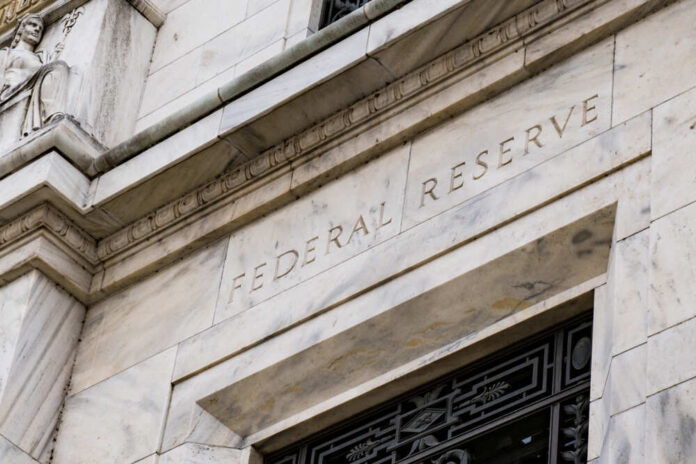
The U.S. economy is headed towards a recession that will have lasting effects, warns the Federal Reserve’s staff. In minutes released from the Fed’s March meeting, the forecasters predicted a “mild recession starting later this year, with a recovery over the subsequent two years.” Even a minor downturn could result in stock market crashes and unemployment spikes, as JPMorgan strategists estimate at least a 15% downside to stocks.
Despite signs of economic slowdown, President Biden’s spending habits are not curbing the upcoming recession but contributing to its unsustainability. Nobel Prize-winning economist James Buchanan’s concept of “fiscal illusion” explains how the actual costs of public policies are obscured, leading to increased demand for government spending and harming future taxpayers. This fiscal illusion is evident in the federal deficit financing and the unfunded Social Security and Medicare liabilities.
The Fed says a mild recession is in the cards this year. What could that look like?https://t.co/kL1IqSAtld
— FOX Business (@FoxBusiness) April 20, 2023
Federal deficit financing and the national debt transfer some of the burden to future generations, leading current taxpayers to demand more government spending than they otherwise would. In addition, unfunded liabilities in Social Security and Medicare programs present a bigger problem due to their larger size and faster growth. The Biden administration is exacerbating these issues by vowing not to cut a single Social Security or Medicare benefit while in office, pushing the burden onto the near future.
The most recent State of the Union address demonstrated President Biden’s grip on fiscal illusion. He boasted about cutting the deficit by more than $1.7 trillion. Still, he failed to mention that the Congressional Budget Office (CBO) estimates the average yearly federal deficit over the next decade will be $1.6 trillion under current policies. Consequently, Biden’s policies are placing the burden on future generations.
Fed Chairman Jerome Powell has acknowledged that unemployment is “very likely” to rise due to higher rates, forcing businesses and consumers to cut spending. The central bank’s March meeting projections show officials expect the unemployment rate to rise to 4.6% by the end of next year, up from the current 3.5%. This means nearly 2 million Americans could lose their jobs between now and the end of the year.
Policymakers have approved nine consecutive rate increases and are considering a tenth increase at their next meeting in early May. However, the administration’s response to the economy’s uncertainty seems to focus on short-term relief rather than long-term sustainability, as evidenced by its spending habits and stance on Social Security and Medicare benefits.
The political manipulation of fiscal illusion through entitlement programs is evident in the Democrat-supported Social Security 2100 Act, which increases current benefits in the program. This action further burdens future Americans in a system that cannot pay its accumulated bills, raising future liabilities and generational unfairness.
The Federal Reserve’s warning of an upcoming mild recession should prompt the Biden administration to reassess its unsustainable spending habits. By continuing to feed into the fiscal illusion, the government is only delaying the inevitable consequences that will negatively impact future generations. It is time to recognize the necessity of constraints on spending and entitlement programs rather than leaving budgets adrift in the sea of Democratic politics.














